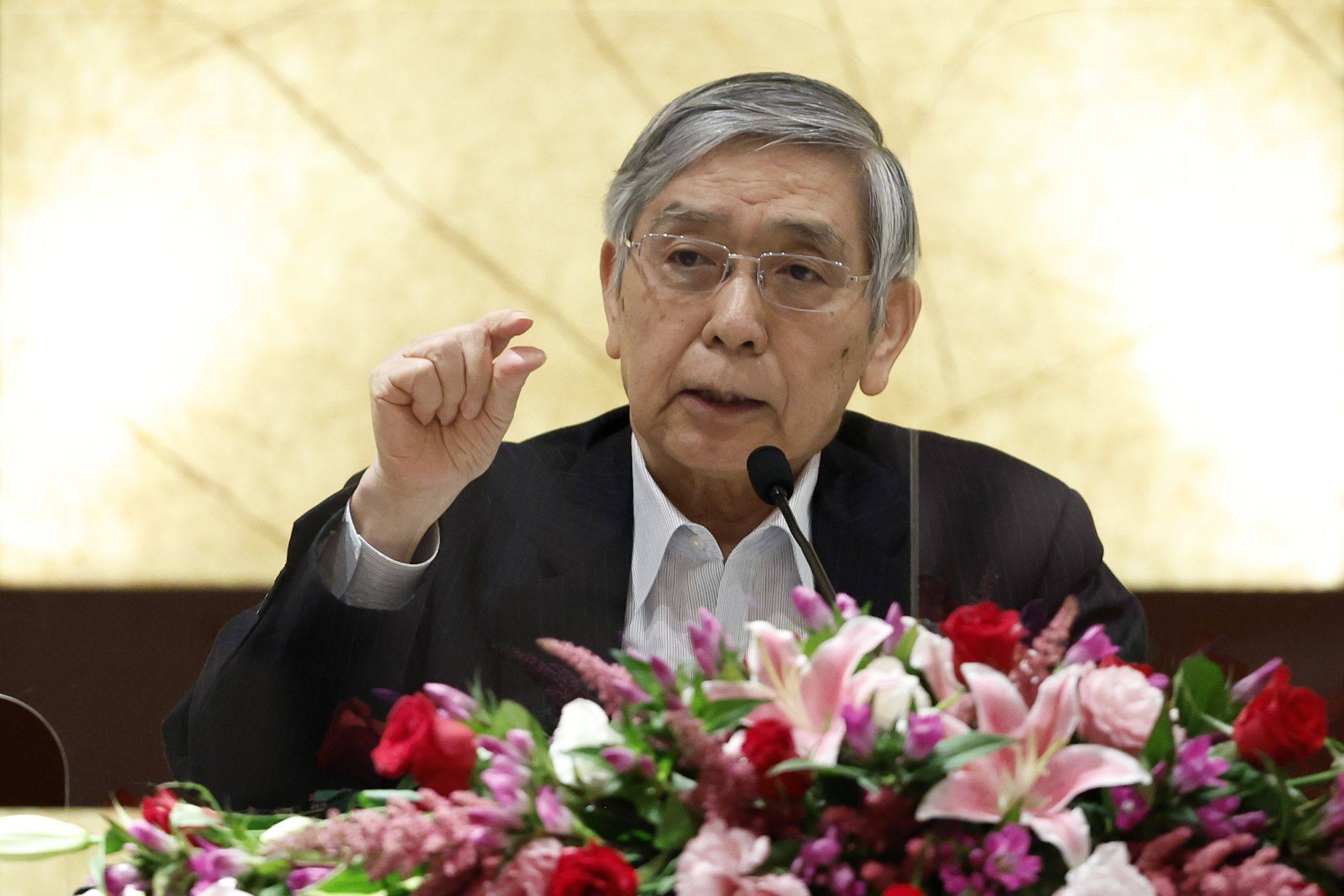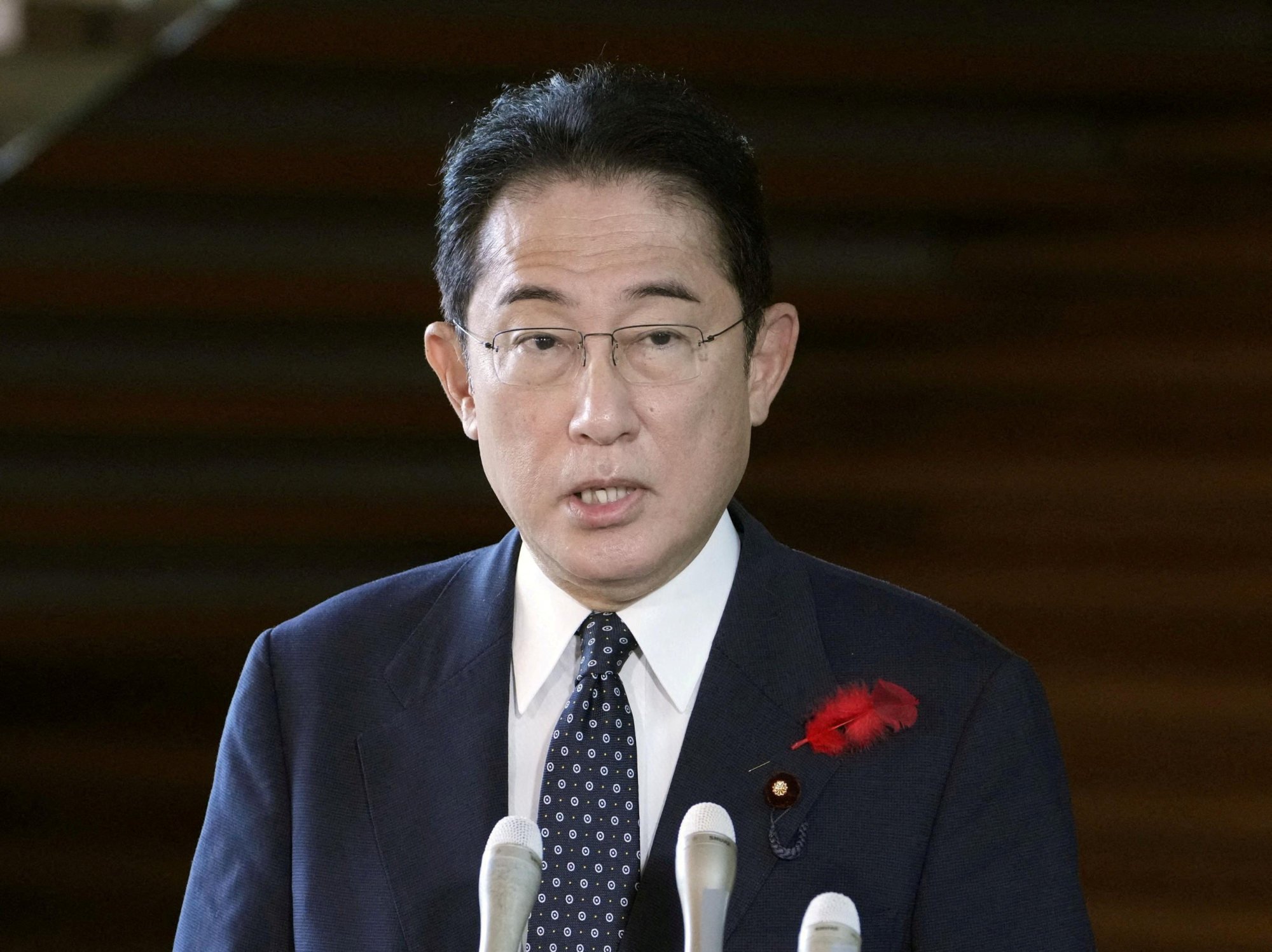
Bank of Japan ‘playing for time’ as it sticks to ultra-loose policy despite yen plunge, analysts say
- Central bank ‘playing for time’ as it looks to slow down weakening of yen until global conditions improve
- PM Kishida backs central bank’s yen approach but faces host of other challenges that could make it difficult for him to survive next six months
The Bank of Japan is sticking to its contrarian ultra-easy monetary policy and “playing for time” despite the yen continuing to test record lows against the US dollar, analysts have said, adding that more intervention in the currency markets by Tokyo is imminent.
As Japan reopens, weak yen is both good and bad news for travel sector
There are also plenty of hawks in the ruling Liberal Democratic Party agitating for a greater commitment to defence spending and a stronger line on the nation’s regional rivals.
The yen briefly crossed the 147.65 per dollar mark on Thursday, crossing its weakest point since August 1990. The yen was affected by the widely held belief that the US Federal Reserve will confirm in the coming days that it will stick to its monetary tightening policy.
Finance Minister Shunichi Suzuki on Wednesday admitted the ongoing volatile fluctuations in the yen were “extremely concerning” and that Tokyo would take “decisive” measures against rapid changes in the exchange rate.

On Wednesday, Bank of Japan Governor Haruhiko Kuroda said the policy of monetary easing must “certainly” be continued in order to stably meet the inflation target of 2 per cent. Kuroda said escalating import costs were largely to blame for the growing domestic inflation rate and insisted that rising wages would help solve the problem.
Martin Schulz, chief policy economist for Fujitsu’s Global Market Intelligence Unit, said Tokyo would again have to intervene in the money markets in the near future.
“They have already started to intervene but they did not know at that time whether it would be effective. Now the Ministry of Finance and the Bank of Japan are committed to following the same policy for as long as monetary policy is going in the opposite direction in the US and the rest of the world,” he said.
“The plan seems to be to slow down the weakening of the yen until overall conditions around the world have changed, and there are already some indications that is happening,” he added. “The Japanese economy is in comparatively good shape, exports are doing well and the broader Asian economy is also gradually recovering.”
The hope was that the relatively good economic situation in Japan would attract investors “looking beyond the present interest rate cycle”, Schulz said, which would put the currency back on a more even keel.
As a consequence, he added, Japan was unlikely to experience a serious recession and the central bank’s strategy of playing for time should put it in a good position by the middle of next year.
Soaring US dollar sends Asian currencies reeling – but not Singapore’s
Stephen Nagy, an associate professor of international relations at Tokyo’s International Christian University, said it was not clear Kishida would be able to weather the political storms that continued to swirl around him.
“Kishida has not wavered in his support for Kuroda, and the policy is to take advantage of the situation to turn Japan into an export superpower and then use the results of that to increase workers’ wages,” he said.
Kishida this week said he stood by the strategy of an ultra-loose monetary policy until wages rose and vowed to continue to “work closely” with Kuroda, dismissing speculation he would bring the central bank governor’s tenure to a premature close or apply pressure to reverse the negative rate policy. Kuroda is scheduled to complete his 10-year term as BOJ governor next spring.

“At the moment, I am not thinking of shortening his term,” Kishida told the Financial Times. “I will look ahead to the expected economic conditions of April next year in my deliberations on choosing the right person for the job.”
The prime minister’s comments are being interpreted as a clear vote of confidence in the central bank’s approach to the yen situation, although there are rumblings that Kishida himself does not enjoy the same degree of support from the public or some in his own party.
Additional problems could be on the horizon, Nagy said, with an increasingly assertive China active in the region, Russian forces struggling in Ukraine, and the Republican Party expected to pick up seats in the coming US midterm elections, potentially disrupting politics there.
“If [Kishida] can survive the next six months, then he might come out of this quite well,” Nagy said. “But there is a big question mark over his ability to weather the other political storms that he faces on top of this one.”


